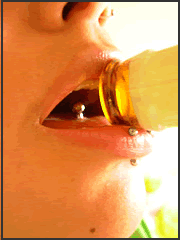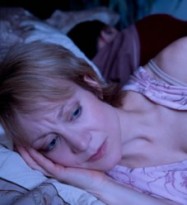Published: February 19, 2009

© iStock
And are health experts and policy makers too quick to condemn what has been part of British culture since the days of the Vikings?
These are just some of the controversial issues raised in a study by a Dutch- born academic at Teesside University
who has been observing the British taste for ‘binge drinking’ for a number of years. [continue reading…]
Published: February 19, 2009
Participating in certain mental activities, like reading magazines or crafting in middle age or later in life, may delay or prevent memory loss, according to a study released February 17 that will be presented at the American Academy of Neurology’s 61st Annual Meeting in Seattle, April 25 to May 2, 2009.
The study involved 197 people between the ages of 70 and 89 with mild cognitive impairment, or diagnosed memory loss, and 1,124 people that age with no memory problems. Both groups answered questions about their daily activities within the past year and in middle age, when they were between 50 to 65 years old. [continue reading…]
Published: February 19, 2009

Image: iStockphoto
Take anyone with a psychiatric disorder and the chances are they don’t sleep well. The result of their illness, you might think. Now this long-standing assumption is being turned on its head, with the radical suggestion that poor sleep might actually cause some psychiatric illnesses or lead people to behave in ways that doctors mistake for mental problems. The good news is that sleep treatments could help or even cure some of these patients. Shockingly, it also means that many people, including children, could be taking psychoactive drugs that cannot help them and might even be harmful. Link to read this article
Source: New Scientist
Published: February 18, 2009
 My mother passed away on Saturday. Everyone keeps telling me how sorry they are, and this started me thinking. I am feeling strangely detached at the moment, but that is OK. How are you supposed to feel when someone dies? Well just how you are feeling¦. You will know your emotions better than anyone else. So when people tell you how sorry they are¦ (its what everyone says when they hear someone has died¦ its because they expect you to be sad and upset, and that they are expecting you to be experiencing grief in this particular way.
My mother passed away on Saturday. Everyone keeps telling me how sorry they are, and this started me thinking. I am feeling strangely detached at the moment, but that is OK. How are you supposed to feel when someone dies? Well just how you are feeling¦. You will know your emotions better than anyone else. So when people tell you how sorry they are¦ (its what everyone says when they hear someone has died¦ its because they expect you to be sad and upset, and that they are expecting you to be experiencing grief in this particular way.
I have learned through my many years as a therapist not to have expectations of what my emotions should be right now.I share this story with you so that when you lose someone close to you, whatever you feel, angry, relieved, sad, acknowledge your emotions¦. Your path through grief is as unique as you.


 My mother passed away on Saturday. Everyone keeps telling me how sorry they are, and this started me thinking. I am feeling strangely detached at the moment, but that is OK. How are you supposed to feel when someone dies? Well just how you are feeling¦. You will know your emotions better than anyone else. So when people tell you how sorry they are¦ (its what everyone says when they hear someone has died¦ its because they expect you to be sad and upset, and that they are expecting you to be experiencing grief in this particular way.
My mother passed away on Saturday. Everyone keeps telling me how sorry they are, and this started me thinking. I am feeling strangely detached at the moment, but that is OK. How are you supposed to feel when someone dies? Well just how you are feeling¦. You will know your emotions better than anyone else. So when people tell you how sorry they are¦ (its what everyone says when they hear someone has died¦ its because they expect you to be sad and upset, and that they are expecting you to be experiencing grief in this particular way.